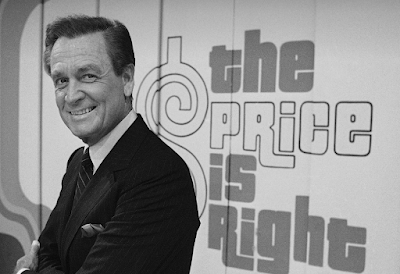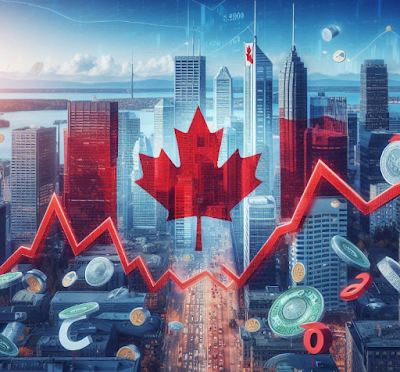Tag Archive: US
Risk Appetites Challenged after US Equities Tumble
Overview: The sharp sell-off of US stocks yesterday as
sapped the risk appetite today. Equities are being sold. Hong Kong and the
index of mainland shares that are listed there led the regional decline with
3.2%-3.3% losses. Europe’s Stoxx 600 is off about 0.65% in late morning
turnover, the fourth day of losses. US futures are trading with a lower bias as
well. European 10-year bonds are mostly 1-2 bp firmer. The US 10-year Treasury is
practically...
Read More »
Read More »
Yesterday’s Dollar Recovery Questioned Today
Overview: The 11 bp jump in the 10-year US yield yesterday after dropping nearly 26 bp in the previous three sessions, helped the greenback recover and took a toll on stocks. Still, the S&P 500 is above the low set on November 30 (~3939) before Fed Chair Powell's talk that day.
Read More »
Read More »
Chinese Yuan Jumps While the Dollar recovers After Losses were Extended Against the Euro and Sterling
Overview: The markets remain hopeful about a re-opening in
China and continue to pour into Chinese stocks on the mainland and in Hong Kong. The
index of Chinese companies that trade in the US rose nearly 22.4% last week. Large
bourses in the Asia Pacific region were mixed, but China and Hong Kong stand out.
Europe’s Stoxx 600 is nursing a small loss for the second consecutive session. US
equity futures have a slightly heavier bias. European 10-year...
Read More »
Read More »
Attention turns to US Jobs while the Yen’s Surge Continues
Overview: There have been significant moves in the capital markets this week
and participants are turning cautious ahead of the US employment report. After the
US equity market rally stalled yesterday, nearly all the Asia Pacific bourses fell
today. The strength of the yen (~3.8% this week) has weighed on Japanese equities
(Nikkei -1.8% this week) and spurred the BOJ to buy ETFs today for the first
time in five months. Europe’s Stoxx 600 is...
Read More »
Read More »
Dollar Jumps, while Surge in Covid Cases Raise Questions about China’s Pivot
Overview: Surging Covid cases in China and Hong Kong
are undermining hopes of a Covid-pivot and the US dollar is broadly higher.
Equities are under pressure to start the week. Most of the large bourses in the
Asia Pacific but Japan, fell earlier today. Europe’s Stoxx 600 is paring last
week’s minor gain, which was the fifth consecutive weekly rise. US stock futures
are lower, while the 10-year US Treasury yield is flat near 3.83%. European
yields...
Read More »
Read More »
Capital Flows Outstrip Trade Flows and that is Where to Look for Drivers of FX
Policymakers have often said that exchange rates should reflect fundamentals. What does that really mean? Can they do anything but that? It begs the question of which fundamental factors they should reflect.
Read More »
Read More »
The Dollar Edges Higher
Overview: After selling off amid
speculation that China’s Covid policy was going to ease, we expected the greenback
to recover and consolidate ahead of Thursday’s CPI. This did not materialize
yesterday, but the dollar has come back better bid today. Equity markets are
mostly firmer, but nearly all the large markets, but China/Hong Kong, rising in
the Asia Pacific region. Europe’s Stoxx 600 is posting small gains. It is the third
session in a row...
Read More »
Read More »
Risk Appetites Survive China Keeping Zero Covid Policy
Overview: Chinese officials denied plans to end the zero-Covid policy
and after a brief wobble, risk assets have traded better. Asia Pacific equities
rallied, led by Hong Kong and mainland stocks that trade in Hong Kong. Europe’s
Stoxx 600 opened lower but recovered and is around 0.5% higher after the 1.8%
gain before the weekend. US futures are firm. Benchmark 10-year yields are mostly
2-4 bp softer in Europe and the US. The dollar is mixed. The...
Read More »
Read More »
The Week Ahead: How Sticky is US Inflation and How Soft is China’s?
There are three potential inflection points. The first is a
pause from the Fed; if nothing else, Powell signaled it was too early to think
about it. The second is for the Bank of Japan to change monetary policy.
Governor Kuroda has signaled that it is not time. Conventional wisdom is there
will not be a change until Kuroda's term ends next April. However, we note that
the surveys suggest economists and BOJ inflation forecasts for next year have...
Read More »
Read More »
RBA Hikes by 25 bp, Chinese Stocks Surge, and the Greenback Trades Heavier
Overview: Risk appetites have returned today. Bonds
and stocks are advancing, while the dollar is better offered. Unsourced claims
that Beijing has formed a committee to assess how to exit the zero-Covid policy
sent Chinese shares sharply higher. An index of mainland companies list in Hong
Kong jumped nearly 7% and closed up almost 5.5%. The Hang Seng surged 5.2%,
while all the large markets in the region advanced. Europe’s Stoxx 600
recovered...
Read More »
Read More »
The Dollar Returns from the Weekend Bid
The dollar has come back from the weekend bid. After the ECB and BOJ meetings last week, the focus has shifted back to the US where the FOMC meeting concludes in the middle of the week and the October employment report is out ahead of the weekend. Sterling and the yen are the weakest performers among the G10 currencies and are off 0.45%-0.50%. The Antipodeans are performing best and are straddling little changed levels.
Read More »
Read More »
BOJ Doesn’t Surprise, but EMU does with October CPI and Q3 Growth
Bonds and stocks are being sold ahead of the weekend. Poor corporate earnings and higher inflation in Japan and Europe are weighing on sentiment. The dollar is mostly higher. Hong Kong and mainland China led large Asia Pacific markets lower. India and Singapore were notable exceptions.
Read More »
Read More »
Dollar Slump Stalls Ahead of ECB Meeting
The dollar’s recent losses have left it stretched on a near-term basis after today’s ECB meeting, the focus will shift to the Federal Reserve, next week’s meeting, and the employment report. The greenback is trading with a firmer bias against the G10 currencies, while the emerging market currencies are more mixed.
Read More »
Read More »
Dollar Slumps, Yuan Rallies by Most this Year amid Intervention Talk
Overview: The US dollar is having one of toughest days of the year. It has been sold across the board and taken out key levels like parity in the euro, $1.15 in sterling, and CAD1.36. The Chinese yuan surged over 1%. Chinese officials promised healthy bond and stock markets.
Read More »
Read More »
Consolidative Tuesday
Overview: The yen and sterling are trading quietly after the recent drama, but with the Party Congress ending, the Chinese yuan has been permitted to fall faster. It approached the 2% band today and its loss of about 0.65% today makes it the weakest among the emerging market currencies.
Read More »
Read More »
Dollar Trades Above JPY150 and Truss Gets No Reprieve
Overview: China and Japan continue to struggle to stabilize their currencies, while global interest rates rise. The offshore yuan has fallen to new lows but in late dealings the onshore and offshore yuan have recovered.
Read More »
Read More »
Week Ahead: Focus Shifts away from the US after Robust Jobs Data and Stronger than Expected Inflation
The latest US employment and inflation figures are passed. The market is confident of a 75 bp rate hike next month. While a 50 bp in December is still the odds-on favorite, the market has a slight chance (~15%) of a 100 bp move instead after the robust jobs report and stronger-than-expected September CPI.
Read More »
Read More »
Dollar Recovers from Yesterday’s Stunning Reversal, but has Sentiment Turned in North America?
There has been little follow-through dollar selling so far today after yesterday’s dramatic downside reversal after the initial flurry of buying in response to the stronger than expected US CPI.
Read More »
Read More »
Can We Look Past US CPI ?
Overview: There seems to be a nervous calm today ahead of the US CPI. The dollar is hovering near JPY147 but the risk of BOJ intervention in the North American session seems slim. The BOE’s emergency Gilt buying operation ends tomorrow and UK bonds yields have tumbled. While equities in the Asia Pacific region lost ground, Europe’s Stoxx 600 is trying to snap a six-day decline.
Read More »
Read More »
The Tragedy of the Commons
Overview: The dramatic moves spurred by the BOE maintaining the end of the week deadline for its Gilt purchases, which have been quite modest given its wherewithal, have calmed. Sterling is firmer on the day, though long-end Gilt yields are higher. The dollar has pushed above JPY145.90, where the BOJ intervened last month.
Read More »
Read More »













































